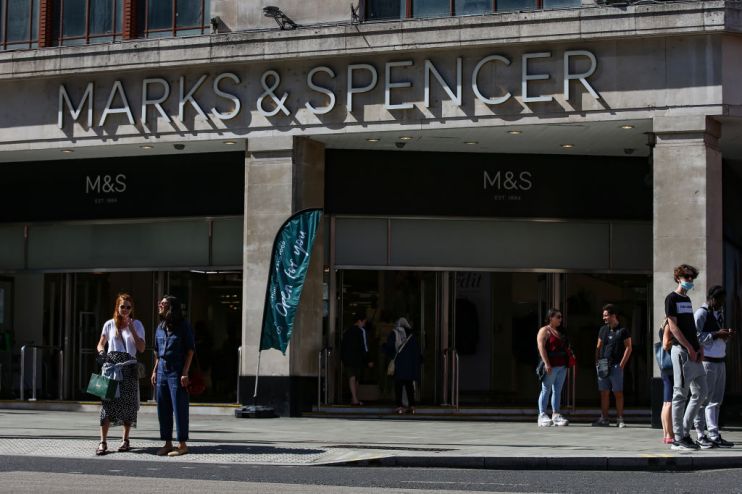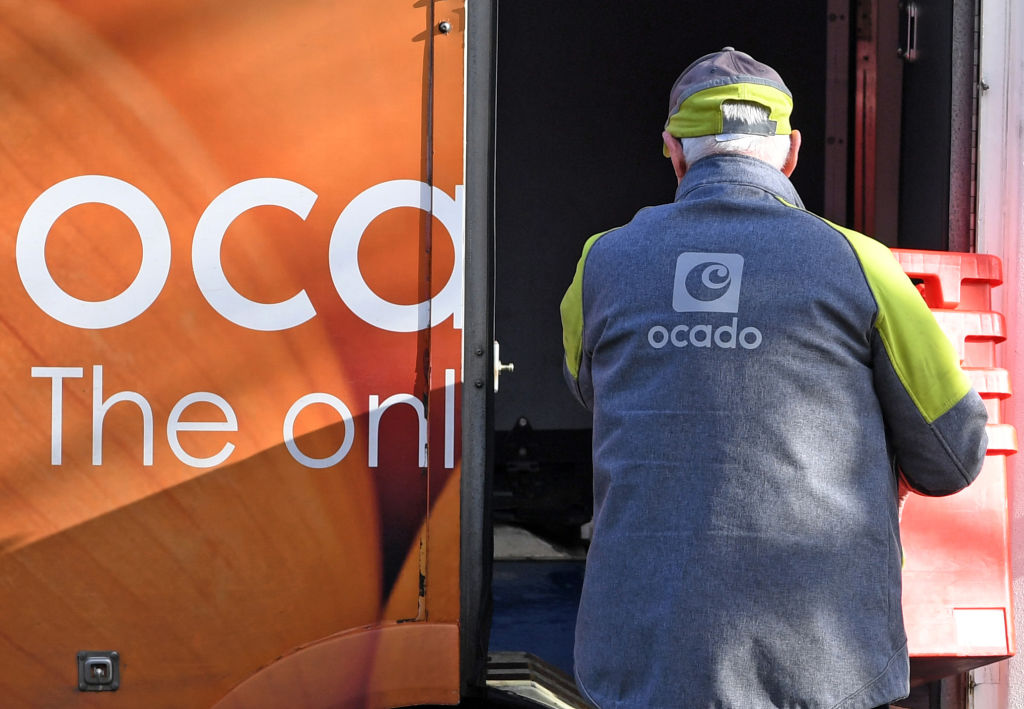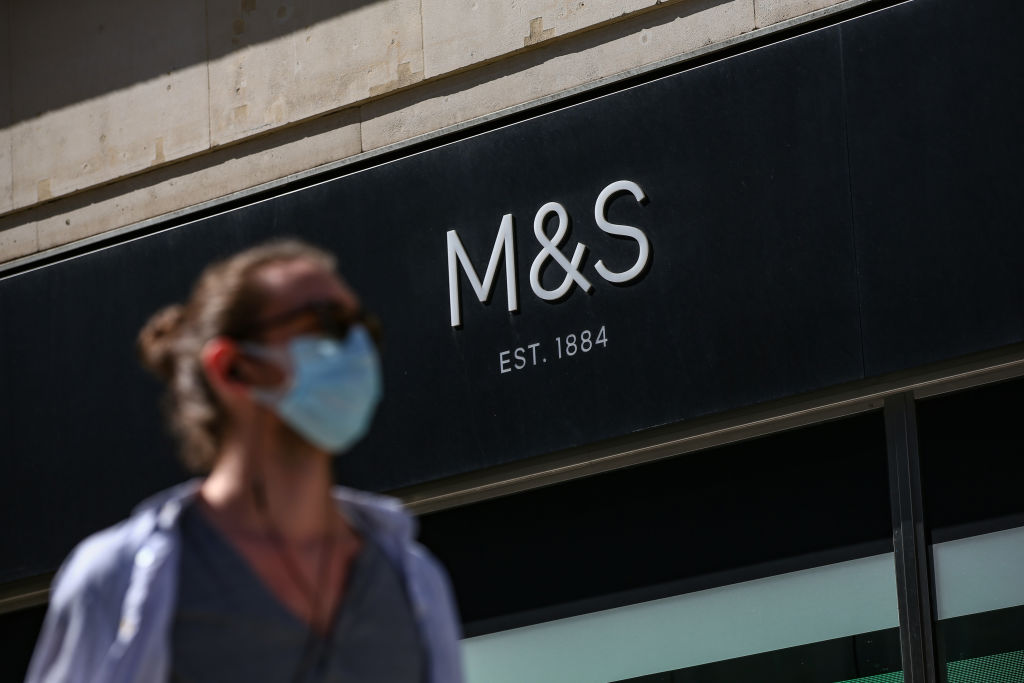Marks & Spencer to axe 7,000 jobs within three months amid pandemic

Marks & Spencer is set to slash 7,000 jobs by December in a huge restructuring brought about by the pandemic, it said today.
The high street giant, which was struggling prior to coronavirus, will focus the cuts in its central support centre, regional management and UK stores.
It comes on top of 950 job cuts to store management roles it announced in July as part of a transformation programme.
And M&S chief executive Steve Rowe warned that while his transformation programme has progressed, “the outlook is uncertain and we remain cautious”.
“We are today announcing proposals to further streamline store operations and management structures,” he added.
“These proposals are an important step in becoming a leaner, faster business set up to serve changing customer needs and we are committed to supporting colleagues through this time.”
M&S said “a significant proportion” of the 7,000 job cuts will come through voluntary departures and early retirement.
But the overall number, which now amounts to 10 per cent of its 80,000-strong workforce, underlines the seismic impact coronavirus has had on the retail sector.
It makes M&S the latest retailer to announce a swathe of job cuts. But unlike Debenhams, Pret and John Lewis they are not linked to store closures, despite an accelerating shift online.
Shares fell almost three per cent to 110p in morning trading.
Coronavirus crashes Marks & Spencer sales
Still, Marks & Spencer has suffered a torrid time during the coronavirus crisis.
Overall sales have slumped 19.1 per cent over the past five months, it said today. Its underperforming clothing and home division has been hit hardest by lockdown and by the home working trend to crash 49.5 per cent year on year.
That drop came despite food sales growing 2.5 per cent compared to the same period last year. The rise in grocery sales failed to offset a 29.9 per cent plunge in clothing and home division sales over the eight weeks to 8 August.
Today it revealed that group sales have slumped 19.2 per cent since lockdown began in March. In the last two months, since stores could reopen in June, overall sales have still fallen 10 per cent year on year.
Digital sales surge offers bright spot

Marks & Spencer today underlined an acceleration in moving its focus from brick-and-mortar to online, where sales were a different story compared to its high street fortunes.
Its struggling clothing and home unit posted an online sales surge of 39.2 per cent in M&S’ struggling clothing unit in the two months to 8 August. Since lockdown began, the unit has seen online sales grow by almost a third.
Overall, Marks & Spencer enjoyed a 38.9 per cent boom in online sales since March.
It also committed to creating “a number of new jobs” in digital sales fulfilment as its £750m online shopping deal with Ocado begins in September amid rising sales from its website.
“It is clear that there has been a material shift in trade and whilst it is too early to predict with precision where a new post-Covid sales mix will settle, we must act now to reflect this change,” the retailer said.
M&S said that the cuts to shop floor workers would likely see store staff continue their post-lockdown multi-tasking shifts, where they switch between the till, the grocery aisle and the clothing & home sections.
M&S in ‘desperate’ retail gear shift
Richard Lim, chief executive of research firm Retail Economics, said the huge job cuts show Marks & Spencer is radically switching to reflect new shopping habits.
“This is a massive reduction in their workforce and the retailer is desperately attempting to reposition the business towards a new normal emerging in the sector,” he said.
“This painful readjustment period will see a significant reduction in labour costs, cutting back on store numbers and pivoting the business model to become nimbler and more digitally focused.”
Lim added: “The way we shop has changed on a permanent basis for many parts of the sector almost overnight. The reality is that many more retailers will fail and the number of job losses will ramp up as government support is withdrawn. This is the calm before the storm.”
Too little too late for Marks & Spencer?

Shopworkers’ trade union Usdaw called the job cuts “yet another devastating blow for M&S staff” and a “bombshell” for high streets.
Usdaw called for government intervention to stop high street stores collapsing, and pushed Marks & Spencer to allow it to represent shopworkers.
“What the retail sector needs now is a tripartite approach of the government, unions and employers working together to develop a much needed retail recovery plan,” national officer Dave Gill said.
He called for business rates reform, a crackdown on tech giants not paying enough tax, and a “comprehensive review” of shop rents.
But Hargreaves Lansdown said today’s job cuts show Marks & Spencer has belatedly realised it must catch up to the retail sector’s wider digital shift.
“M&S has realised it needs to act now if it wants to secure the longevity of the business,” Sophie Lund-Yates, an equity analyst at the investment fund, said.
“Coronavirus has exacerbated existing fault lines – namely that shopping habits have changed and M&S has been slow off the mark meeting those shifting demand patterns.
“An added blow from the current crisis is that the type of clothes we’re after has changed too, and not in M&S’ favour. Consumers are more interested in leggings than a new office outfit these days.
“No business ever wants to put its workforce through mass redundancies, but these streamlining efforts are necessary given the challenges.
“Sharpening the workforce and throwing weight behind the online business makes sense, the question now is whether M&S’ digital dawn is simply breaking too late.”